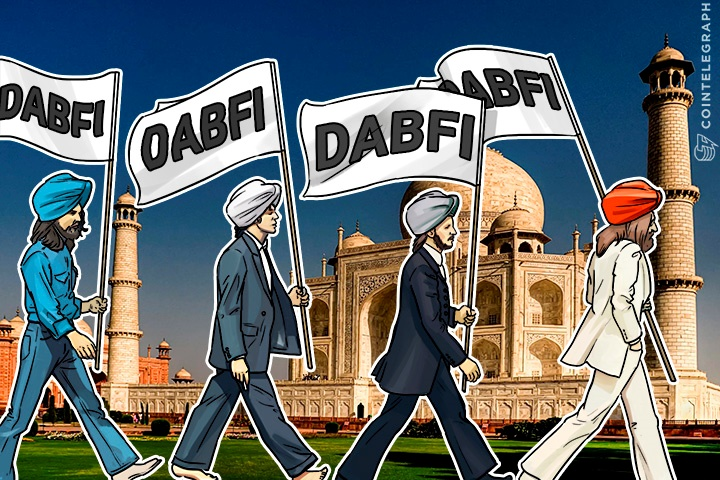A number of Indian Bitcoin companies have come together to form the Digital Asset and Blockchain Foundation of India (DABFI). Bitcoin has been remarkably gaining ground in India after the botched up demonetization carried out by the Indian government in November 2016.
According to the Times of India, Nishith Desai Associates, an international law firm has been hired to develop “self-regulations” for the industry.
No clear regulatory framework in place
The new for self-regulation for the industry arises primarily because there is still no clarity on the legal status of Bitcoin in India.
As recently as February 2017, the Indian central bank, The Reserve Bank of India had issued a warning to Indians that hold or trade in the cryptocurrency. India has stringent KYC/AML norms in place though for regular banking, mutual fund and insurance sectors.
However, when it comes to Bitcoin, the Reserve Bank has largely been a keen spectator instead of a participant.
Committee formed to set regulations in India
According to the news agency ANI, a committee has been founded under Saurabh Agrawal, CEO of Zebpay and other members include Sandeep Goenka of Zebpay, Mohit Kalra of Coinsecure, Sathvik Vishwanath of Unocoin, Harish B.V. of Unocoin and Vishal Gupta and Rashmit Gupta of Searchtrade.
Sathvik Vishwanath, Co-founder of Unocoin, talking about the formation of DABFI tells Cointelegraph:
“The plans to create an association for cryptocurrencies has been there since many years but was not getting materialized. This year, the industry has taken a strong stance to make it happen. This coupled with the warning from RBI that reiterated the risks and issues associated with cryptocurrencies on Feb. 1st, 2017 has given birth to DABFI.”
ANI reported Saurabh Agrawal as saying, “This organization aims to drive education and create a market for Blockchain and Bitcoin in the Indian market which is now on the path of the digital economy. Our vision would be to work with regulators and develop a strong framework for our industry to provide required impetus for the growth of the industry.”
Is self-regulation the best regulation?
DABFI would have the mandate to build credibility and also raise awareness with respect to cryptocurrencies in India.
However, it would be interesting to note that the cryptocurrency industry in India and elsewhere is one of the few industries that is craving a clear regulatory environment and is almost clamoring for authorities to take notice of their existence.
As Sathvik of Unocoin tells us:
“Like in most of the rest of the world, the cryptocurrencies are not regulated in India. DABFI will lay down self-regulatory regimes for the trading of Bitcoins and other Blockchain-based digital assets. These trading platforms that sign up with the association will also standardize KYC/ AML/ STRS norms for the member companies.”
He also says that apart from this, the organization will build credibility and create awareness about the benefits and risks of CC, liaise with regulators and get clarity on taxation, attract investment and set up incubators to promote startups, build global relations and actively engage with International community, create a public website and regularly print reports on and around Bitcoins and Blockchain.
Would self-regulation be enough or would we need more than that to make cryptocurrencies a success in India? Perhaps central bank non-involvement is a blessing in disguise considering the PBOC fiasco earlier this year which led to wild movements in Bitcoin.
India is certainly proving to be an interesting test case as we are seeing an India vs. China scenario even in the cryptocurrency space. Ultimately, who will be better off, the country with self-regulation or a heavy-handed state regulator, only time will tell.


